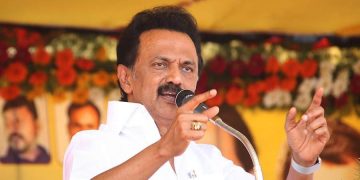Unearthing of a racket involving National Eligibility Entrance Test (NEET) recently may not come as a surprise to many. CBI has arrested the supposed mastermind and eight others who were involved in impersonating real candidates to secure seats in the most sought after entrance test in the country which serves as a gateway to medical seats. The method of the scam was that expert paper solvers appeared in the examinations in place of real candidates in exchange for huge sums of money, to the tune of `2 million. The multi-state scam supposedly spread across Uttar Pradesh, Haryana, Bihar and Maharashtra is under investigation for more leads and the role of coaching institutes is being seriously looked at. While the CBI has informed about these four states, a deep network involving many more states cannot be ruled out. The scam was busted a day after 18 lakh candidates across the country appeared for the test July 17.
This reminds one of the Vyapam Scam which had rocked the country a decade earlier. Irregularities were discovered in 13 different examinations conducted by the Madhya Pradesh government for recruitment to government jobs and educational institutions including medical seats. In fact, the very first instance of irregularities under Vyapam came to light with the leakage of medical papers way back in 2009. During the course of the Vyapam investigation, 23 people related to the scam are supposed to have died due to ‘unnatural causes’.
The hunger for government jobs and medical seats in India has always been high. Securing a seat in medicine is seen as a badge of pride as well as a gateway to sure shot success by students as well as parents, irrespective of whether the candidate is worthy or not. The scanner put by the CBI seems limited to only a few states. In reality, medical colleges have mushroomed across the length and breadth of this country in the past two decades.
Privatisation of education has been a subject of heated debate for quite some time now. Undoubtedly, in the field of medical education, government run institutions fell drastically short of the need for doctors in a country with a burgeoning population. With demand came the supply. Unfortunately, as is extremely usual in India, the suppliers were mostly businessmen who were focused on profits rather than high quality education that would eventually lead to better health facilities. Once the target is crystal clear to everyone, the methodology to achieve it becomes very simple. These great big scams can only take place if the students involved are unworthy with unscrupulous parents. One may wonder how many of the 18 plus lakh candidates who appeared for the recently concluded NEET are truly worthy.
There is a saying that goes – One bad apple spoils the whole bunch. While many candidates would be capable and honest yet the doubt has been cast on their abilities. It has to be understood that a multimillion rupee racket cannot have such deep and massive trails unless and until the number of candidates willing to walk the dishonest path is substantial. It is at this juncture that the role of coaching centres becomes important. Right at the outset, these fraudulent coaching centres assure candidates of bagging a medical seat. To keep their market steady, they prefer to part with the portion of their huge tutorial fee in creating an evil network that makes their enrolled students come out victorious.
Admittedly, this scam could also be taking place in a place like Orissa. Just because no investigation has taken place does not mean no forgery is happening. When seen in this background, one is compelled to wonder what kind of parents encourage their children to consciously adopt devious methods to eventually become doctors who will be expected to serve and save the sick and the weak.






































